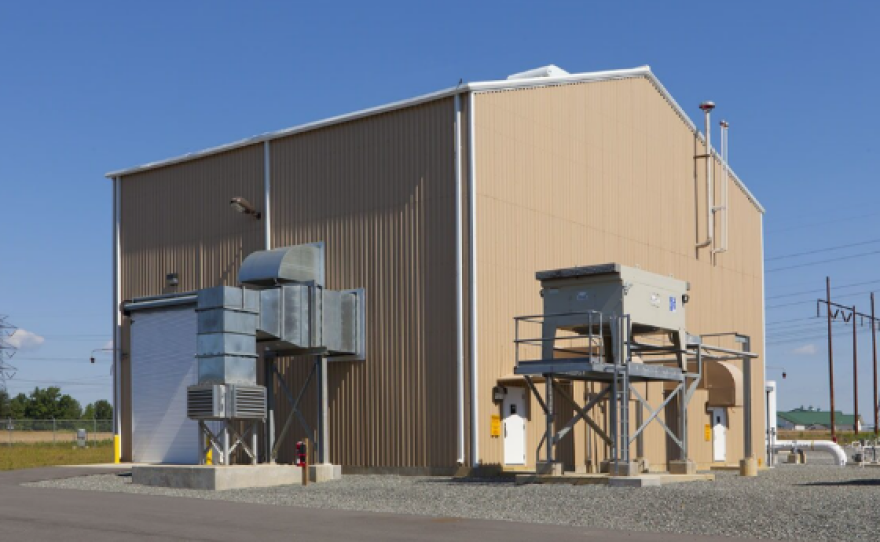Chesapeake City Council members last month approved a request from Virginia Natural Gas to build a new compressor station, reversing course from their previous denial.
Residents strongly opposed to the project are now turning to the state. More than 100 people showed up to a State Corporation Commission public hearing at the Chesapeake Conference Center Thursday night.
Dozens spoke against the project, citing concerns about safety, air pollution and noise in nearby, majority-Black neighborhoods, including Crestwood and Eva Gardens.
“There are several different other sites that have been presented that will be more viable away from communities, away from people’s houses, away from schools, away from our children playing,” said Charles Carrington, a representative of the Chesapeake branch of the NAACP. “The cost is just not worth it.”
Virginia Natural Gas plans to build the $90 million compressor station on an existing company site along South Military Highway and Bainbridge Boulevard.
It sits at the intersection of two interstate pipelines, including a section built in 2017 called the Southside Connector Project.
Ken Yagelski, the company’s gas supply director, said the compressor station is necessary to accommodate rising energy demand, including several thousand more customers each year.
“Every new installation adds more demand on the system, which draws down the pressure in the pipe,” he said. “There’s not a new level of reliability being called for. It's just that the demand for energy in Hampton Roads continues to grow.”
He said the station would likely only run about 20 days each year — the coldest days — similar to “peaker plants” proposed by Dominion Energy to produce natural gas.
Compressor stations maintain the pressure and flow of natural gas. The proposed facility would be the first in Hampton Roads, with the closest in Charles City County.
Smurfit Westrock, a paper mill in West Point, plans to pay for about 10% of the Chesapeake project under an agreement that ensures a portion of the company’s natural gas demand cannot be interrupted.
Virginia Natural Gas uses a “hub and spoke” model to distribute gas, Yagelski said. The proposed site is a hub. Building it elsewhere would require building new pipelines to connect.
Yagelski said many of the health concerns raised are based on compressor stations that use combustion engines, which can release harmful pollutants. The Chesapeake station would use electric motors, limiting noise and emissions of greenhouse gases such as methane, he said.

Residents argue, however, that even a small amount of added pollution or industrial noise is too much, because the lower-income neighborhoods are already exposed to existing gas and electrical infrastructure.
“I stand here tonight on behalf of the families of Chesapeake, who have been asked to bear the burden of risk without ever being given the benefit of investment,” said Melinda Gainer. “Those of us who have been systematically ignored until it's time to dump danger in our laps.”
The Chesapeake Climate Action Network also voiced concerns about the project’s role in continuing the use of fossil fuels, the burning of which contributes to climate change.
Residents say they are additionally frustrated because of the recent City Council process.
The council voted in June against rezoning land from residential and business to light industrial purposes, for the compressor station, acknowledging community concerns about environmental justice.
A month later, council reconsidered and approved the request 6-3, along racial and political party lines. The council also limited the time period for public comments beforehand.
Approval from state regulators is the company’s last major hurdle.
SCC hearings operate as a de facto courtroom to gather public testimony. Commissioners will soon use the comments, along with other evidence, to make a final decision.


